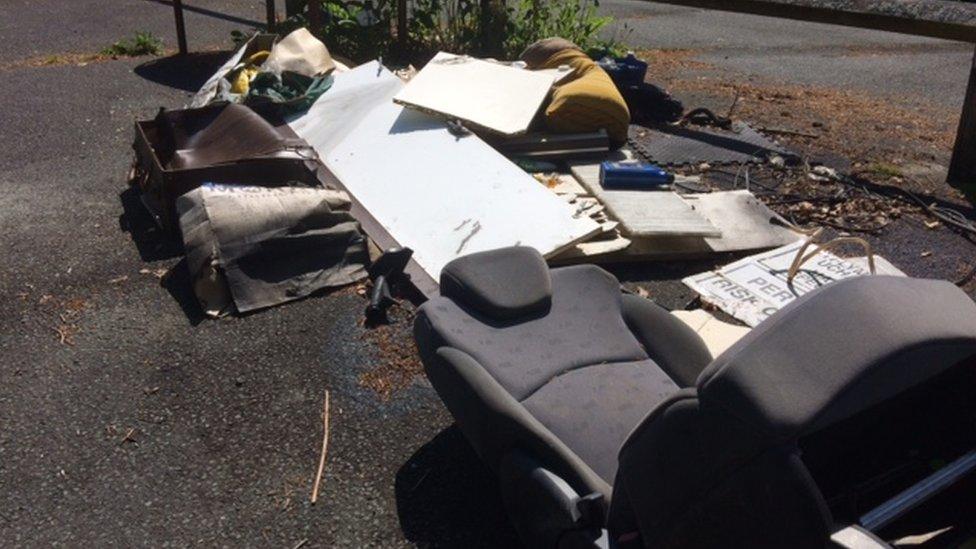Coronavirus: Fly-tipping and wildlife cruelty 'up in lockdown'
- Published
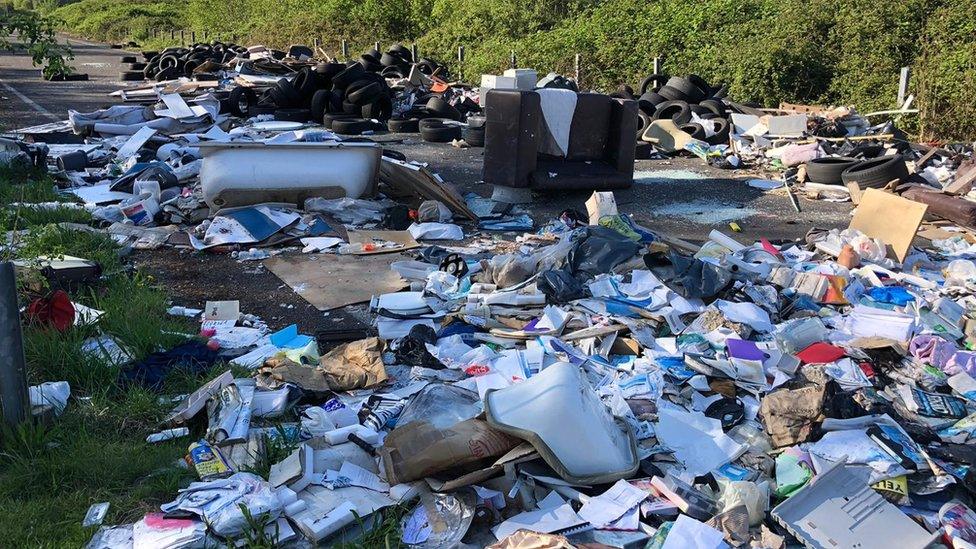
Environmental groups have reported an increase in fly-tipping during lockdown
There has been a rise in fly-tipping and cruelty to wildlife during the coronavirus lockdown, conservation groups have told the Senedd.
Littering, fires and the building of unauthorised bike trails are some of the problems reported.
In one incident a tonne and a half of waste was dumped in Wentwood Forest, Monmouthshire, the Woodland Trust said.
The comments were made to members of the Welsh Parliament's climate change committee.
The Marine Conservation Society said there was also likely to be an increase in the level of pollution on beaches.
It said there would be "limited opportunities for organisations such as ourselves to be able to undertake beach cleans using dedicated volunteers, coupled with a likely overall increase in domestic coastal holidays".
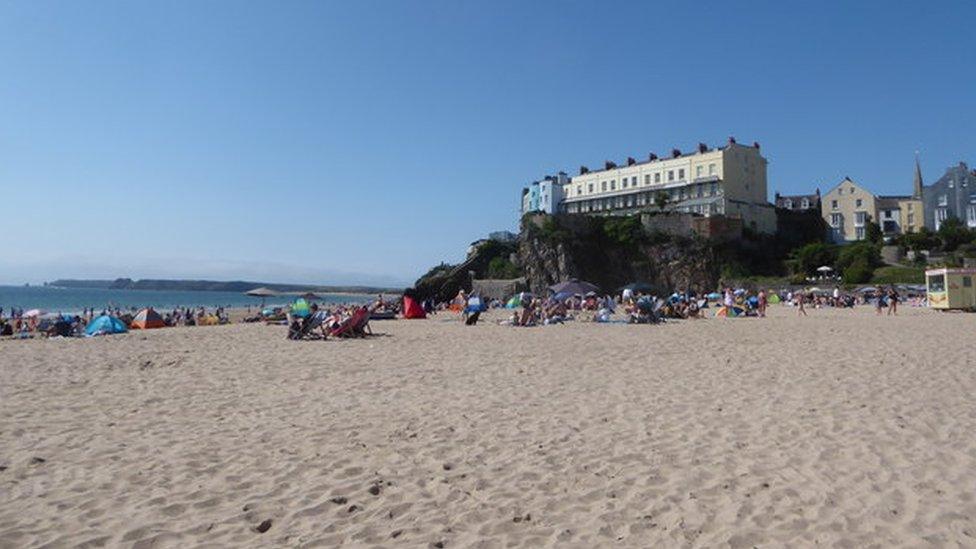
Beaches are expected to see an increase in the level of pollution
"We have experienced a significant increase in fly tipping and other forms of antisocial behaviour, such as littering, unauthorised bike trail building and fire-setting," the Woodland Trust said.
It owns more than 100 woods in Wales, covering 7,159 acres (2,897 hectares).
The trust's Jerry Langford told the committee it has to deal with the cost, like other private landlords.
He said that at a time when increased surveillance was needed, its income was forecast to drop by 30% from 2020.
Rebecca Williams of the National Trust in Wales described "significant antisocial behaviour", such as littering and gates being left open.
'Cruelty to wildlife'
Witnesses to the committee also reported mistreatment of wildlife during lockdown.
Rachel Sharp of Wildlife Trusts Wales said they had seen "misuse of sites, even cruelty to wildlife".
There had been a "greater disturbance of wildlife during lockdown", according to Jess McQuade of WWF Cymru, while Katie-Jo Luxton of RSPB Cymru reported habitat destruction, dogs not kept on leads and illegal use of 4x4 vehicles.
Gill Bell of the Marine Conservation Society said there had been an increase of fly-tipping "and now fast-food waste with lockdown restrictions being eased".
- Published22 April 2020
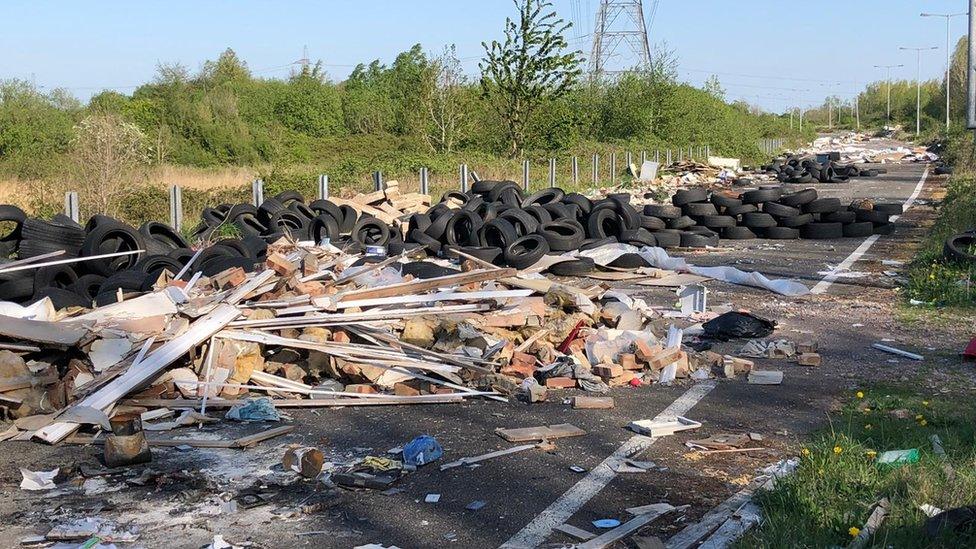
- Published22 April 2020
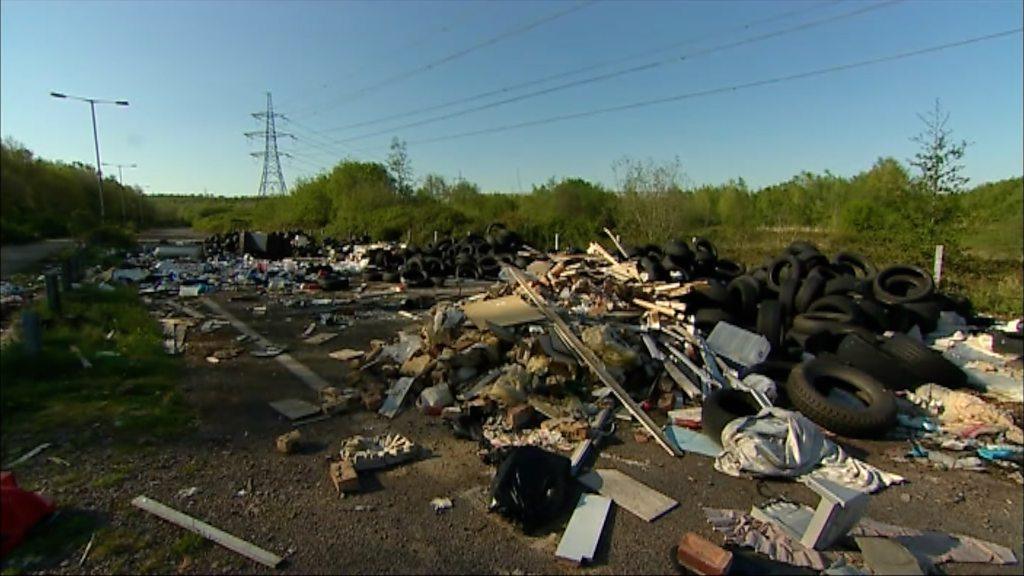
- Published19 February 2019
